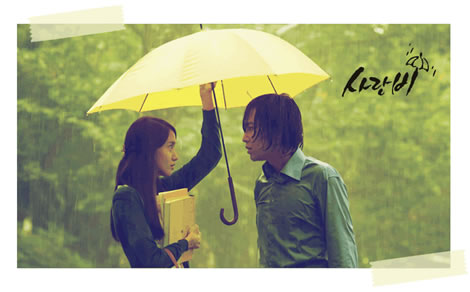There was no morning crowd at the Busan Coastal Ferry Terminal. Waiting seats inside the passenger hall were mostly empty. The ticket counter staff were having it easy with only few random customers to serve. But when ferry boarding was announced, people suddenly streamed out from nowhere and a queue was formed almost immediately at the boarding gate. The noise level increased for a short while before peace was restored again. The crowd vanished as fast as it was formed.
I was moving around the terminal, taking pictures of it. As I brought my camera to focus on the passenger hall below from level two of the terminal, I noticed a silhouette near the right edge of the viewfinder. A man was leaning over the guardrail, staring out aimlessly. I did not suspect he noticed me, so I took a quick shot of his lonesome figure against a large empty space.
I was an hour too early for my ferry, so I decided to leave the terminal to find a place for breakfast. As I was crossing the overhead bridge to get across the road outside the terminal, a hand from behind pressed down on my shoulder. I turned my head and saw a burly middle-age man.
"웬일이세요? (What is the matter?), I asked whilst still calming a slight shock.
"Did you take pictures inside the terminal?", he asked in Korean.
"You mean photo-taking is not allowed inside the terminal? I am not aware of that.", speaking in broken Korean, I started to panic, fearing I might get in trouble with the local security.
"I saw you took a picture of me. Show me your camera.", he demanded with a hostile tone.
I surrendered my camera after switching on the photo viewer for him to browse.
"한 장만 찍었는데요." (I took only one shot.), I interrupted as he was viewing my photos.
"Are you a police? Who are you?"
I was taken aback and made more confused by his questions. I thought he was a security guard at the terminal. I could not figure out what he was up to.
"아니요, 저는 외국인이예요." (No, I am a foreigner.)
"You're a foreigner?... Let's go to a photo shop and check all your photos."
So I followed him into a nearby photo shop. He requested the shop owner to use his shop's computer to display all the photos stored inside my SD card. After he was convinced there was only one photo of him, he requested the shop owner to delete it immediately. At that point, he was no longer as tense as before.
We left the photo shop together and walked back in the direction of the ferry terminal.
"If you're not Korean, how could you speak Korean?", he asked in a friendly tone.
"한국어를 조금 배웠어요." (I learned a bit of Korean.)
"You speak Korean well."
"Thank you."
Not satisfied that I did not know what was happening, I asked again,
"웬일이세요? (What is the matter?)
"나, 도망자." (I am a fugitive.)
"도망자요? 어디에서 왔어요? (Where did you come from?)
I mistook "도망자" as illegal immigrant initially. So I was interested to know which country he escaped from. He could have been a North Korean defector for all I know.
"What?", he returned a confused look.
His look hinted I could have misinterpreted what he said. Then, with a skip of heartbeat, I realised "도망자" is actually "逃亡者", which is fugitive from justice.
He was friendly though, a complete contrast to his earlier self. Perhaps, he no longer saw me as a threat. It could also be I was the first person in a long while whom he could safely talk to without fearing I might turn him in.
We had casual conversation on the way back to the terminal. Once we re-entered the terminal, we parted way because I had a ferry to catch. He showed his appreciation for my company with a gentle pat on my shoulder before he left. By then, boarding had started for my ferry.
On the ferry to Geoje island, I thought about my unusual encounter. Why did our path cross? My heart told me I was a fugitive just like him. He was running away from justice and I from reality. It was like Huckleberry Finn and Jim; their path crossed when both of them were running away from their enslavement, despite one being white and the other black.
"I am no coward. I will go home and face the reality one day. Meanwhile, I just want to enjoy a moment of freedom.", I assured myself. Soon, I fell asleep. I dreamed of seagulls flying freely at the Busan port.
 |
| Soon, I fell asleep. I dreamed of seagulls flying freely at the Busan port. |






















































